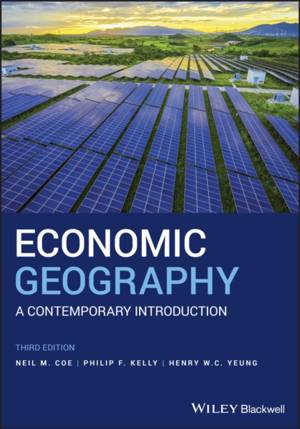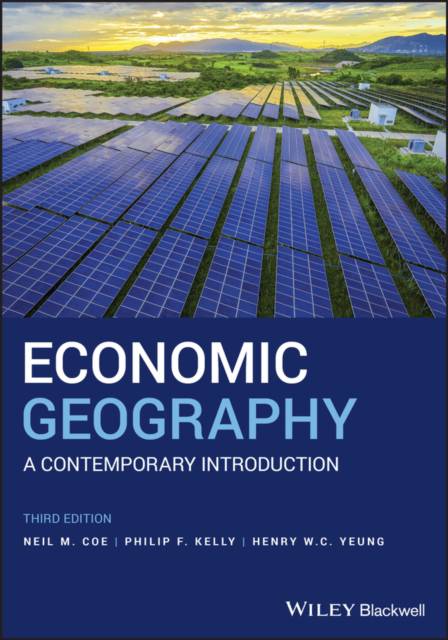
- Retrait gratuit dans votre magasin Club
- 7.000.000 titres dans notre catalogue
- Payer en toute sécurité
- Toujours un magasin près de chez vous
- Retrait gratuit dans votre magasin Club
- 7.000.0000 titres dans notre catalogue
- Payer en toute sécurité
- Toujours un magasin près de chez vous
Economic Geography
A Contemporary Introduction
Neil M Coe, Philip F Kelly, Henry W C YeungDescription
A revised and updated edition of the leading introductory text on the geography of economic life, from the local to the global
Economic Geography is an engaging and accessible introduction to the different ways modern economic geographers understand, analyze, and interpret economic processes. This comprehensive text addresses significant questions relevant to contemporary economic life, from the activities of transnational corporations to issues surrounding workplaces and consumption. It encourages readers to explore how spatial patterns, places, networks, and territories shape large-scale economic processes. Accessible, highly-illustrated material presents fresh insights from the field--complemented by relatable, real-world examples that help students understand the social, cultural, and political contexts underpinning global economic processes.
Now in its third edition, this extensively revised and updated textbook retains the features and thematic structure that have proved popular with students and instructors alike, while adding exciting new content. New chapters explore how the global economy and global development are institutionalized and governed, the economic geographies of global climate change, economic practices outside the capitalist mainstream, the role of migrants in labour markets, global production networks, and more.
- Introduces economic geography with a thematic approach including major concepts, current debates, and case studies
- Revised and updated to enhance international coverage, including three entirely new chapters on international development, alternative economies, and global climate change
- Substantial new content on labour migration, global production networks, and recent intellectual trends such as evolutionary economic geography
- Highly illustrated with diagrams and photographs closely integrated into the text
- Pedagogical aids including key case studies, learning objectives, text boxes, chapter essay questions, summaries, and further reading
- Core geographical concepts - such as place, networks and territory - are closely integrated into all chapters.
Economic Geography: A Contemporary Introduction is an invaluable source of up-to-date knowledge for students new to the field, for those requiring a solid foundation, as well as for a broader academic and public readership with interest in this area of study.
Spécifications
Parties prenantes
- Auteur(s) :
- Editeur:
Contenu
- Nombre de pages :
- 576
- Langue:
- Anglais
Caractéristiques
- EAN:
- 9781119389552
- Date de parution :
- 31-12-19
- Format:
- Livre broché
- Format numérique:
- Trade paperback (VS)
- Dimensions :
- 178 mm x 251 mm
- Poids :
- 1220 g

Les avis
Nous publions uniquement les avis qui respectent les conditions requises. Consultez nos conditions pour les avis.






